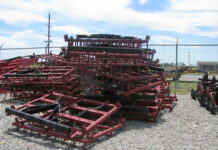Photo credit: DiasporaEngager (www.DiasporaEngager.com).
In the Islamic Republic of Iran, a landscape once rich with cultural and political heritage now suffers under the yoke of an authoritarian regime that has hijacked the once-sacred act of voting.
The disenfranchised Iranian populace finds itself ensnared in a system where elections serve as nothing more than a spectacle of faux democracy, orchestrated to sustain the illusion of legitimacy for a government that has systematically eroded civil liberties and human rights.
The recent boycotts of Iranian presidential elections is not merely a passive act of defiance, but a pronounced indictment of a regime that has failed its people spectacularly. This boycott transcends mere political disillusionment; it is a profound statement against the regime’s propaganda machine that paints participation as a civic duty, while in truth, it is a coerced endorsement of a predetermined outcome.
Within this context, the roles of presidential candidates become clear. Figures such as candidates Jalili and Pezeshkian, perceived by the public not as pioneers of change but as stalwarts of the status quo, are emblematic of a broader political malaise. They are seen not as legitimate contenders for leadership, but as cogs in a machine engineered by Supreme Leader Ayatollah Khamenei. His regime, epitomized by a relentless grip on power, manipulates every facet of governance — from the judiciary to the military — to ensure that no true opposition can emerge.
Khamenei himself stands as a paragon of dictatorial excess, embodying the antithesis of the democratic values he purports to uphold. His plans to establish a dynastic succession through his son, Mojtaba, reveal a blatant disregard for democratic processes and a preference for monarchical rule disguised as religious governance. This maneuver is not just a perpetuation of personal power; it is an affront to the collective will of the Iranian people, signaling that even the semblance of choice is a privilege granted by the ruling elite, not a fundamental right.
The boycott, therefore, is a critical expression of political maturity and historical consciousness by a society that, despite being shackled by fear and repression, recognizes the futility of participating in a predetermined play. Over the decades, Iranians have cultivated a sophisticated understanding of their political landscape, informed by repeated cycles of promised reforms followed by inevitable retrenchment. This has led to a collective awakening, where the electorate refuses to validate a corrupt system through participation in its rigged elections.
The implications of this silent boycott extend beyond the immediate context of electoral politics to touch upon the very legitimacy of the regime. The vilayat-e faqih system, which centralizes religious and political authority in the hands of the Supreme Leader, is fundamentally incompatible with the principles of democratic governance. It perpetuates a model of leadership that is inherently despotic, reminiscent of historical caliphates where rulers wielded absolute power, unaccountable to their subjects.
This model of governance has not only stifled political dissent but has also led to economic stagnation and social decay. Iran’s economy, heavily sanctioned by the international community and mismanaged by corrupt elites, teeters on the brink of collapse. The regime’s failure to effectively address these issues, combined with its oppressive tactics to suppress any form of dissent, has only deepened the resolve of the Iranian people to seek change.
The reformist factions within Iran, including groups like the Islamic Left and participants of the 1979 revolution, once heralded as agents of change, now find themselves in a precarious position. Their calls for reform, constrained within the parameters set by the regime, have failed to bring about any substantive change. Instead, they serve to perpetuate a facade of progress, even as the fundamental structure of the regime remains unchallenged.
As the regime continues to clamp down on dissent and tighten its authoritarian grip, the response from the populace has been one of increasing resistance. The silent boycott is an active strategy of non-compliance that challenges the regime’s authority and exposes its vulnerabilities. This growing undercurrent of civil resistance is a testament to the resilience of the Iranian people, who, despite enduring decades of repression, are increasingly determined to imagine and fight for a future that aligns with their aspirations for freedom and justice.
In conclusion, the silent boycott of elections in Iran represents more than a momentary expression of discontent. It is a profound challenge to a regime that relies on suppression and deception to maintain control. For the international community and observers of Iranian politics, this act of boycott is a crucial indicator of a shifting political consciousness among Iranians. As this political drama unfolds, it becomes increasingly clear that the path to genuine reform in Iran must be paved with the active participation of its citizens, demanding and implementing a system of governance that truly represents their will and respects their rights.
Erfan Fard is a counterterrorism analyst and Middle East Studies researcher based in Washington, DC. Twitter@EQFARD.
Source of original article: Erfan Fard / Opinion – Algemeiner.com (www.algemeiner.com).
The content of this article does not necessarily reflect the views or opinion of Global Diaspora News (www.GlobalDiasporaNews.com).
To submit your press release: (https://www.GlobalDiasporaNews.com/pr).
To advertise on Global Diaspora News: (www.GlobalDiasporaNews.com/ads).
Sign up to Global Diaspora News newsletter (https://www.GlobalDiasporaNews.com/newsletter/) to start receiving updates and opportunities directly in your email inbox for free.


































